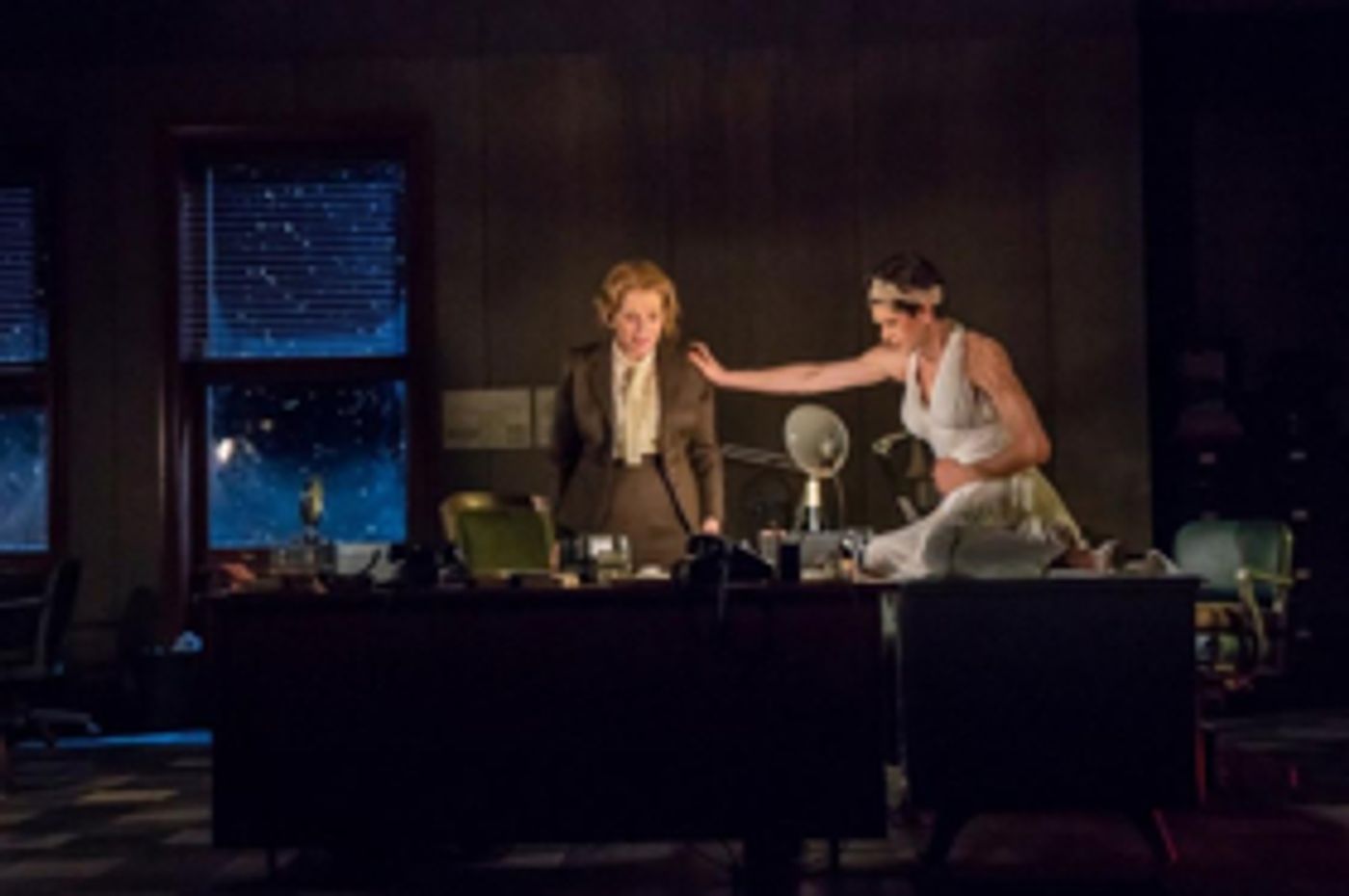Review Roundup: What Did Critics Think of Whishaw and Fleming in NORMA JEANE BAKER OF TROY?

The Shed, led by Artistic Director and CEO Alex Poots, has just begun its 2019 inaugural season on Manhattan's west side. New York City's first arts center dedicated to commissioning, producing, and presenting new work across the performing arts, visual arts, and popular culture, THE SHED will focuses on commissioned programs filling its iconic and expansive multi-use hall, two floors of column-free galleries, and versatile and intimate theater.
Newly opened, Norma Jeane Baker of Troy is the first theatrical production to inaugurate the space. A melologue (partly spoken, partly sung) performance piece based on the ancient Greek tragedy of Helen by Euripides, Norma Jeane Baker of Troy is specially commissioned from the poet, essayist, and scholar Anne Carson, written for actor Ben Whishaw, with soprano Renée Fleming. The production is staged by theater and opera director Katie Mitchell.
Let's see what the critics had to say...
Robert Hofler, The Wrap: Poor Marilyn Monroe. What did she ever do to end up the object of such absurd debasement in Anne Carson's "Norma Jeane Baker of Troy," which had its world premiere Tuesday at the Shed, the new cultural center at New York's Hudson Yards? I attend close to 200 productions of plays, musicals and operas a year. Never have I seen so many walk-outs in 90 minutes (the running time of "Norma Jeane") as I did at a preview of Carson's play.
Matt Windmand, AMNY: Despite Whishaw's vocal and physical flexibility, the production eventually starts to feel like a pretentious, rambling bore. Followers of experimental theater may be able to make sense of the piece, however, and fans of Whishaw and Fleming may also find it somewhat interesting. In any event, it demonstrates the kind of offbeat and challenging work that one should expect to see in the future at The Shed.
James Tarmy, Bloomberg: This is a play that could conservatively be called experimental. Judging from the audience's tepid reaction on its first night of previews, it was a type of experimentation that was definitely not for everyone. It's a show that uses a classical paradigm to address issues of misogyny that are both age-old and depressingly current.
Tim Teeman, The Daily Beast: When Whishaw's character asks, "Do we leave now?" it may take great collective inner strength for an audience not to respond, "Excellent question, can we?" If only somebody had asked in creating this play: who are these characters, where are they, what are they doing, what is this about, how can we make it clearer to the audience? It shouldn't be philistinish to expect some degree of clarity from even the most experimental theatrical piece.
Michael Sommers, New York Stage Review: Expect to experience a gloomy and unrewarding chamber opera. Carson's text busily merges the rather tired 20th century icon of Marilyn Monroe with the equally overdone mythic figure of Helen of Troy as legendary yet innocent beauties who get a raw deal from posterity that dismisses them as ruinous sirens.
Steven Suskin, New York Stage Review: After sitting through the results-which handfuls of patrons did not at the performance attended, brusquely streaming out during the intermissionless proceedings-you'll likely be asking not how they will accomplish this; but what in the name of Menelaus are they trying to accomplish?
Jonathan Mandell, New York Theater: Now, there are undeniable pleasures in "Norma Jeane Baker of Troy" - Fleming's lovely singing, Wishaw's meticulous and sexy morphing from male to female; I even get the conceptual brilliance of this transformation, its underscoring of Carson's themes - the reversal of gender roles show how unfair the traditional assumptions about women have been. But there are ample examples of the creative team being more interested in experimenting than in communicating. Composer Paul Clark has explained that almost every sound effect in the play - from the sounds of the air-conditioner to police sirens in the background - are made up of digitally processed recordings of Fleming's voice. Why? Well, it's cool.
Photo Credit: Stephanie Berger
- To read more reviews, click here!
- Discuss the show on the BroadwayWorld Forum

